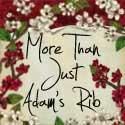 What will you name your new year? Have you even considered giving a name to 2011?
What will you name your new year? Have you even considered giving a name to 2011?Last year, Ann Voskamp at Holy Experience suggested her readers pray for the upcoming year and then name it. As strange as that may seem, I did just that.
With house plans dusted off and sitting on my desk, I felt God speaking that 2010 would be a Year of Restoration. And in so many ways, it has been just that.
Instead of my being dressed in three layers and hunkered over a frigid keyboard, periodically rubbing my hands together when they became too cold and stiff to type, I now sit in a centrally-heated, well-insulated house. It's the home we dreamed for many years, the home delayed for six years by God's hand when He allowed our lives to be sifted by those who sought to destroy us.
With the walls of our home rising up strong around me, we find some large sense of restoration. And I find it such a blessing that the few minutes after a steaming bath is no longer the only time I can feel my toes. Even when the temperature dips low enough to coat the old tadpole holes of summer in a sheet of thin ice, I crinkle them beneath the covers and smile.
I appreciate all these "comforts" that many of you take for granted...and that I took for granted, too, until my seven-year stint living in a couple houses that literally breathed the stifling heat of summer and the coldest of winter when I could see my breath upon awaking each morning.
 I've spent much of December thinking of what this upcoming year holds. A week ago while much of the nation huddled indoors and children played in frozen drifts that covered a dormant creation, God sent Louisiana a series of 70 degree days.
I've spent much of December thinking of what this upcoming year holds. A week ago while much of the nation huddled indoors and children played in frozen drifts that covered a dormant creation, God sent Louisiana a series of 70 degree days.Doug and I roughly sketched out where the garage and a few flower beds would go. Then, he did what any good farmer husband does--took his tractor and tilled up the flower bed that will separate our "yard" from the hay field.
 A few days later, dressed in shorts and a t-shirt, I went to our old home and pressed heel to shovel, unearthing all the red, pink, white, and canna lilies; an old rose; a mound of catnip; and several other plants I had left behind this summer. That afternoon, my parents and I planted everything in two beds. In the back yard, we also put in a live oak and maple tree.
A few days later, dressed in shorts and a t-shirt, I went to our old home and pressed heel to shovel, unearthing all the red, pink, white, and canna lilies; an old rose; a mound of catnip; and several other plants I had left behind this summer. That afternoon, my parents and I planted everything in two beds. In the back yard, we also put in a live oak and maple tree.  When my husband arrived home, he said, "You're putting down roots, huh."
When my husband arrived home, he said, "You're putting down roots, huh."Those were the same words that came to me earlier in the day.
Yes, 2011 will be the Year of Putting Down Roots.
It's time to grow.
"Blessed is the one
who does not walk in step with the wicked
or stand in the way that sinners take
or sit in the company of mockers,
but whose delight is in the law of the LORD,
and who meditates on his law day and night.
That person is like a tree planted by streams of water,
which yields its fruit in season
and whose leaf does not wither—
whatever they do prospers" (Ps. 1:1-3).

























